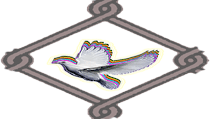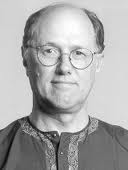Embracing Uncertainty
by George Wolfe
Recently, I was driving my eight-year-old grandson, Orion, to Apple Tree day care. On the way, he asked me a question about a dream he had the previous night. “How do we know,” he inquired, “that where we are now, driving along in this car, is not just another dream? How do we know this is real?”
I was delighted by his curiosity and replied by paraphrasing a Chinese Taoist tale attributed to Chaung Tzu.
Once Chaung-Chou dreamt he was a butterfly. He didn’t know he was Chaung-Chou. Then he awoke and was himself again. But he didn’t know if he was Chaung-Chou who had dreamt he was a butterfly, or a butterfly dreaming he was Chaung-Chou. This is called the transformation of things.
My grandson was at the perfect age to contemplate such a parable. As a second grader, he is much freer to question reality in creative ways.
Not long ago, I attended an adult discussion group at the Unitarian Universalist Church in Muncie. The topic was “Soul Work” which considered the question of how we define our “core being.” Some individuals in this group are atheists who do not believe in anything beyond the physical. They immediately got stymied on how to define “soul.” They saw the word as ambiguous and insisted on being given some specific, scientific definition to convince them it was real.
One problem we have in knowing what is “real” is that there is only one word in the English language for the verb “to know.” In French, there are two words. If you are speaking about being aware of something or knowing a piece of information, you would use the verb “savoir.” But if you are talking about knowing a person, or being familiar with something that requires deeper understanding, you would use the verb “connaître.”
Why? Because knowing a person or being deeply familiar with someone is much different than simply knowing a piece of information. Once you know a phone number for example, your knowledge of that information is complete. But when it comes to knowing a person, you never really know them completely. A person potentially has the depth of mind that enables them to respond thoughtfully and behave in unexpected ways.
If someone is mature psychologically and spiritually, there will always be part of that person we have yet to discover. There is a mystery, a living essence at the depths of everyone. It is like a wave on the ocean of consciousness, the deepest part of ourselves that lies beyond the senses. It cannot be known as a tangible object. We must look inward using a meditative practice to tune into its presence and be receptive to the epiphanies that can dawn from this source within us.
Letting go of the rational, however, is challenging for many because we find security in concrete answers, whether they be answers found through science or religion. It feels secure, believing that creation behaves in rational, predictable ways. I call this egocentric knowing. We think we know, and rest momentarily in a false sense of knowing as it fulfills a need within us. But our present–day understanding of the universe, which is characterized by physicist Leonard Susskind as being more like a hologram, is very much illusory and rooted in uncertainty. Or to quote Nobel Prize winning physicist Neils Bohr, “Everything we call real is made of things that cannot be regarded as real.” We are left with accepting and embracing uncertainty.
I had to admit to my grandson that I did not have an answer for whether or not this was a dream. His question however, showed he was not a slave to his senses. He was able to perceive and entertain the possibility of there being more to life than the material world. It is this gift of insight that many of us lose as we age. Perhaps this is why both the Tao Te Ching and the Gospel of Matthew challenge us to “become like a child again.”
George Wolfe is Professor Emeritus and former director of the Ball State University Center for Peace and Conflict Studies. He also chairs the Muncie Interfaith Fellowship, is a trained mediator, and the author of Meditations on Mystery: Science, Paradox and Contemplative Spirituality.



